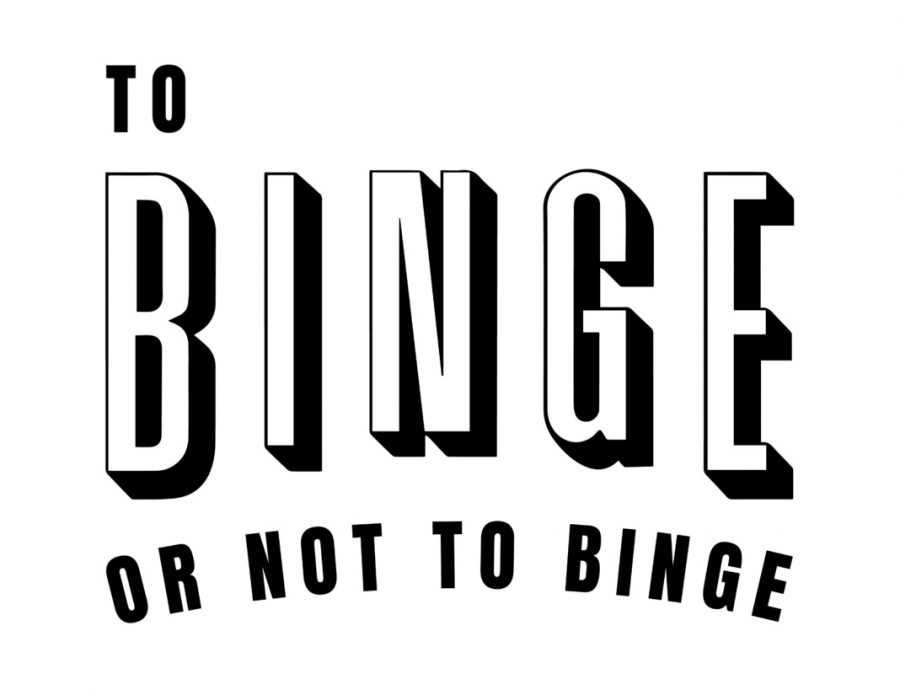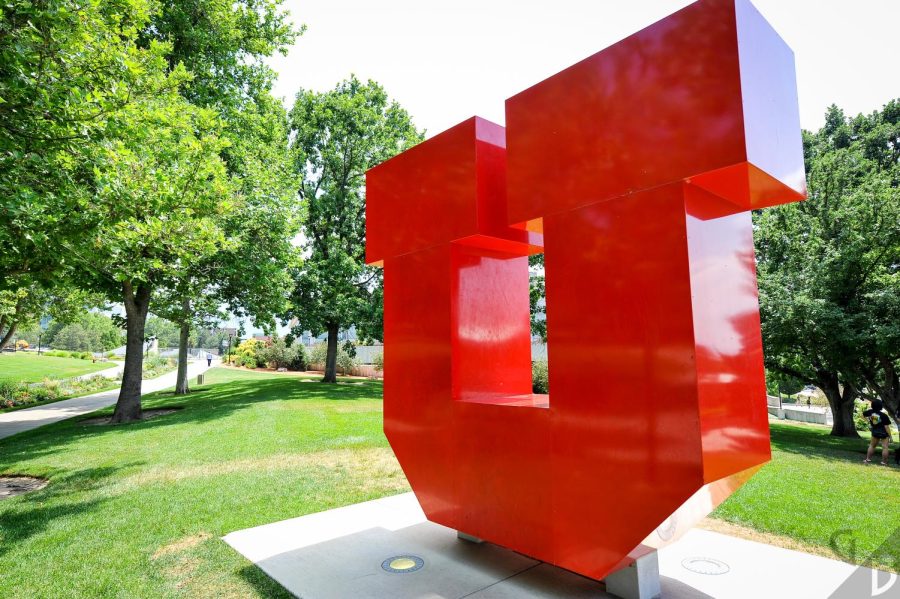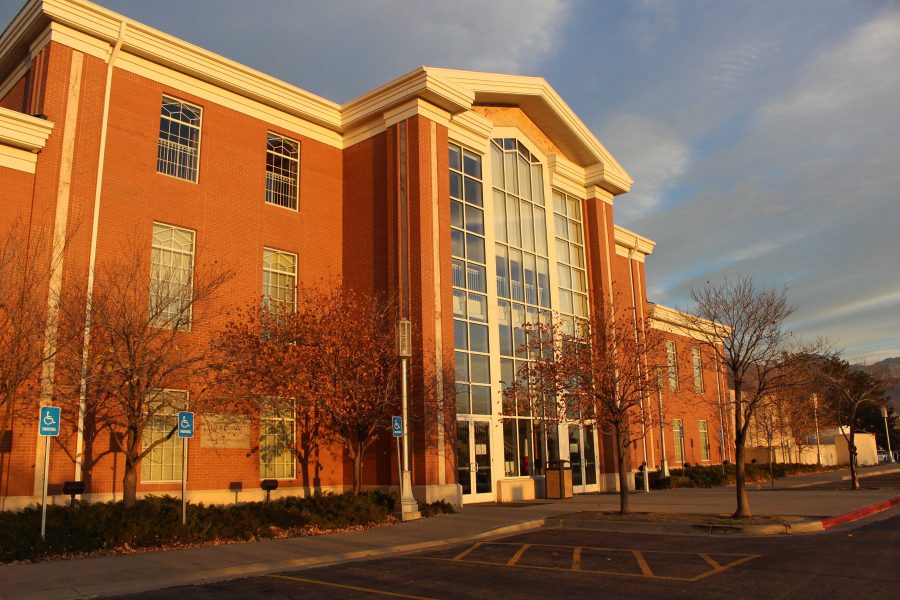To Binge or Not to Binge: Episode 60: ‘Lost’
(Graphic by Hannah Allred | The Daily Utah Chronicle)
September 27, 2019
This article contains mild spoilers for ‘Lost.’
Whenever I tell most media fanatics my age — that is, any given millennial or Gen Z-er with a Netflix or Hulu subscription — that one of my favorite series of all time is ABC’s “Lost,” I’m often met with a response to the likes of “Isn’t that the one weird sci-fi show with the finale that disappointed everyone?” My answer then is typically a sheepish, “Well, yes.”
The series — whose pilot has just reached its 15th anniversary on Sept. 20 last week — deserves far more recognition than what audiences who’ve only seen a handful of its episodes in childhood remember it for. Although the final episode of “Lost” certainly didn’t meet the demands of its initial fanbase and was met with harsh criticism, it is by no means an unintelligent or unworthy resolve, particularly if you go into the series with an open mind and allow yourself to draw your own conclusions.
You’re probably already familiar with the premise of “Lost.” When a plane departs from Australia to the United States but unexpectedly wrecks on a mysterious island in the middle of nowhere, its varied passengers have to work together to figure out how to get home. Initially, their differences make it difficult for them to get along, as the characters range in their nationalities, religions, cultures, professions, age, class status and intentions. However, as the crash survivors discover that the island is inhabited by other dangerous, technologically advanced inhabitants and a fierce, carnivorous monster, they have no choice but to band together and strengthen themselves by recognizing each other’s personal traumas.
“Lost” itself is a rare television gem that’s massively clever, well-developed and worth every minute of binging, especially for new audiences with fresh slates. When I dove into “Lost” for the first time, I kept in mind that the grand finale likely wouldn’t meet my own anticipations, and as a result, the series as a whole rightfully blew me away. I could hardly believe how its reputation had ever deteriorated.
Fortunately, its popularity has resurged amidst both new and longtime fans, and for good reason. “Lost” has most everything one could ask for in entertainment — high cinematic quality, a diverse cast of characters, strong acting, time travel and conspiracy, religious conflict, social commentary, a terrifying monster and tense thrilling action. What better way to celebrate its birthday than to give it a try?
To Binge or Not to Binge?
For the love of all that is great in TV, watch “Lost.” Its effect on modern entertainment is everywhere.
I can’t think of a single episode of this series which I disliked, though a slim handful were sometimes just slightly too violent or slow-paced for my own tastes. In my own opinion, not one moment of tightly woven worldbuilding goes to waste, though many of my questions did remain open-ended by the conclusion of the series.
Nearly every character succeeds both as a morally-gray antihero and a genuinely likable and relatable person. You’ll come to sympathize with nearly each one of them. The plot itself pulls surreal mind twists worthy of Stanley Kubrick’s “2001: A Space Odyssey” or Christopher Nolan’s “Inception.” On top of all that, the show neither treats its own audience as intellectually inept, nor cuts towards a pretentious philosophical bent that nobody can wrap their head around. “Lost” recognizes that all of its interested viewers are capable of asking and solving deeply complex metaphysical and emotional questions, a factor which makes the series stand above many others; it allows one to make of it what one will.
“Lost” offers a hopeful, empowering message that all media can withstand to see more of: that the key to individual redemption from past pain — to live free of being internally ‘lost’ — lays is in our own willingness to build a future of trust and solidarity with those around us. “Lost” isn’t perfect and has received some criticisms for its occasionally-flawed portrayals of different demographics, but on the whole, it is a powerfully uplifting series.
Best Episode
It’s hard to choose a single episode that encapsulates the strongest features of “Lost” as the show itself is incredibly broad. However, given that the pilot of the series is generally regarded by many critics as one of the best openings to any television series ever, I’m going to have to say that the opening to “Lost” — Episode 1, Season 1 — is especially gripping.
Similar Shows
“Lost” shares noticeable elements, namely themes of survival and the surreal, with series such as “Heroes,” “The Walking Dead,” “Twin Peaks” and “Survivor.” It’s also a great pick for anyone who enjoys other popular sci-fis such as “Star Trek” and “Westworld.”
Trigger Warnings
“Lost” has occasional profanity and mild depictions of sexuality. Several episodes depict upfront gore, violence, beatings, surgical imagery and portrayals of suicide. Themes of drug addiction are present. Most of the important characters are subjected to violence at some point throughout the show.
“Lost”
4.9 out of 5 stars
Available to stream on Hulu and Amazon Prime
121 episodes over six seasons, approximately 86 hours total.












